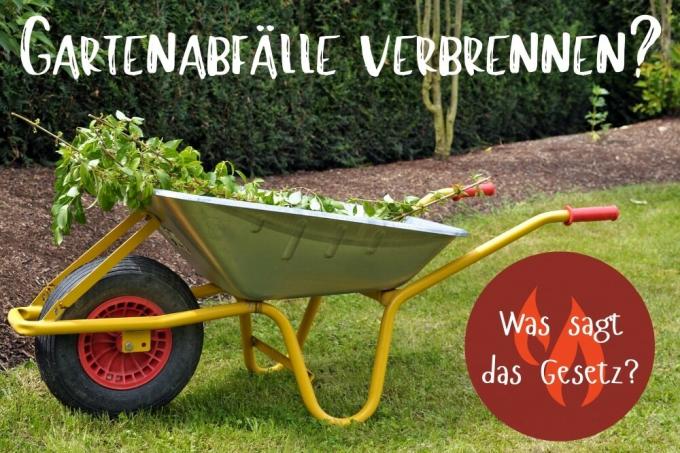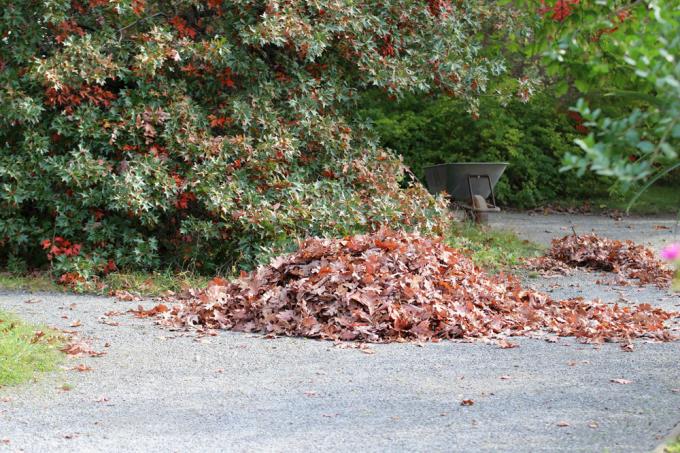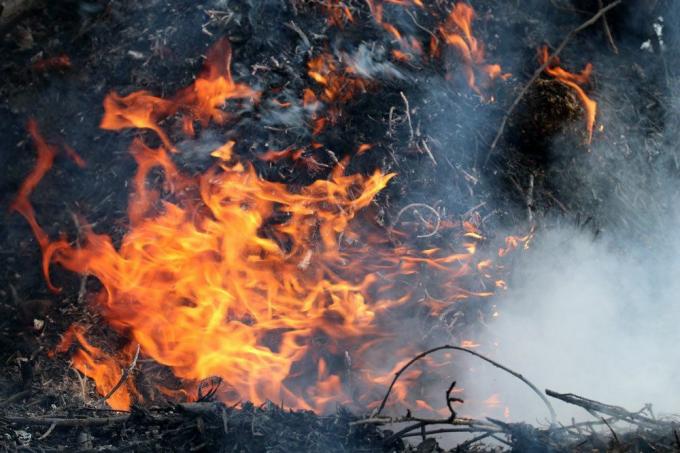
table of contents
- Treatment of vegetable waste
- combustion
- Special regulations
- Fine for violation
Every year, waste is generated in the garden from hedge and green cuttings. However, these may not be incinerated without restrictions. Different regulations apply in the individual federal states.
Treatment of vegetable waste
Anyone who cuts hedges, mows the lawn or clears the driveway of fallen leaves must also remove the waste that has arisen. Garden waste is generated every year on soils used for horticulture and is unavoidable. The disposal of these plant residues must take place in accordance with the organic waste ordinance. Plant waste such as green cuttings should generally be disposed of in waste disposal facilities, but there are exceptions. These are set out in the “Ordinance on the disposal of vegetable waste by incineration outside of waste disposal facilities”. In order to be able to carry out a combustion, two basic requirements must be met:

- no impairment of the general welfare
- only permitted if there are no alternatives to disposal
combustion
Basically, the law provides that vegetable garden waste is primarily recycled through rotting or composting. This can be done on your own property. If you don't have enough space, you can bring the material to collection points or composting facilities. Disposal outside of waste disposal facilities is, however, regulated by ordinances that are issued by each federal state. Disposal is therefore not regulated uniformly. You will find an overview of the regulations for incineration below:
- generally prohibited in Berlin and Bremen
- not permitted in Thuringia and Hamburg outside of waste disposal facilities
- other federal states allow incineration on the property as an exception
- in Bavaria, Hesse and Lower Saxony, this permit is subject to prohibition
- In Brandenburg and Lower Saxony, the measure is subject to approval

Note: It is necessary that you register your fire with the city or municipality in advance. You can also obtain further information about the measure in this way.
Special regulations
The individual ordinances also regulate the type of incineration differently. This can be limited to certain days or periods of time and subject to special conditions. For countries in which the disposal of green waste in a fire is permitted, a minimum distance to streets and buildings, but also to nature reserves and airports, applies. You must always supervise the fire so that it takes place under controlled conditions. Depending on the weather, burning may no longer be permitted. This is the case when there is a risk of forest fire or strong winds. The combustion residues should be worked into the soil as soon as possible. Alternatively, you can also do this on the compost dispose of or cover with earth. The regulations are so different:
- Brandenburg only allows natural dead wood to be burned
- Garden waste, green cuttings and leaves are excluded from this
- Saarland tolerates burning in March and October
- so-called burning days apply in Hesse
- Incineration is possible here between 8 a.m. and 4 p.m. Monday to Friday, and from 8 a.m. to 12 p.m. on Saturdays
- Lower Saxony abolished Brenntage in 2015
- In individual cases, incineration is still possible

Note: Even if it would theoretically be possible in your state to burn garden waste such as lawn clippings, you should find out more from your municipality or city. These do not have to adopt the regulations.
Fine for violation
Anyone who acts against the applicable ordinances and makes a fire in their own garden despite the prohibition is committing an administrative offense. This can be displayed and will be punished with a fine. The amount of the fine varies from state to state. In addition, it is determined on a case-by-case basis, so that the fine can vary within a federal state. The range of amounts due generally fluctuates between 25 and 5,000 euros. In extreme cases, the penalties can be in the five-digit range. Stuttgart and Dresden are among these examples. While in the Baden-Württemberg city offenses can be punished with 15,000 euros, in Dresden fines of up to 100,000 euros are possible.
Sources:
https://de.wikipedia.org/wiki/Verordnung_%C3%BCber_die_Beseitigung_von_pflanzlichen_Abf%C3%A4llen_durch_Verbrennen_au%C3%9Ferhalb_von_Abfallbeseitigungsanlagen
https://mluk.brandenburg.de/mluk/de/start/umwelt/immissionsschutz/luft/holzfeuer/
https://www.octobernews.de/brenntage-in-niedersachsen-ab-1-april-2015-verboten-osterfeuer-bleiben/
https://www.bussgeld-info.de/feuer-machen/
https://www.stuttgart.de/item/show/600943/1
https://www.dresden.de/de/rathaus/dienstleistungen/gruenschnitt.php
